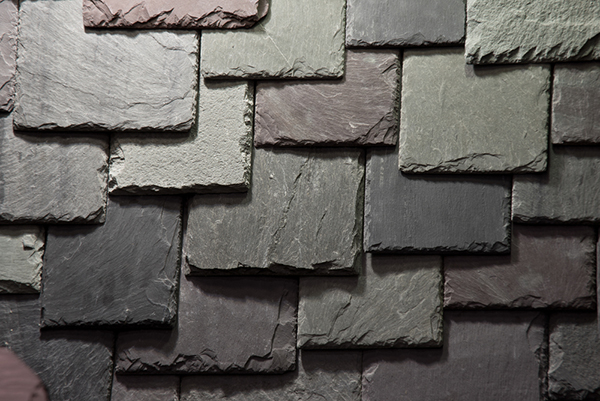What Is a Slate Roof?
Author: Barbara Horwitz-Bennett | December 12, 2023
For homeowners seeking a long-lasting roof with a sleek aesthetic, slate is an optimal choice. So, what is a slate roof, and how do you know if it's right for your home?

The Basics: What Is a Slate Roof?
Made from natural stone, slate roofing materials are formed from a fine-grained metamorphic rock split into thin layers. With the natural variations in its surface, slate features a unique color variation across the entire roof, as it comes in multiple sizes, styles and colors to fit your preferences.
However, for complicated roofs with features such as hips, valleys and dormers, smaller slate tiles may be a better option. This natural stone can break while it's being cut to size for roof features, meaning contractors and homeowners may have to shell out for extra materials to account for breakage.
Slate tiles can be layered to create a textured look. However, this lowers the roof's wind resistance, making the tiles more vulnerable to breakage. If your home has a historic or existing slate roof, keep an eye out for any cracked or missing tiles — they should be replaced immediately to prevent leaks. Quality slate tiles can last for up to a century if the roof is well cared for, and are also fireproof and mold resistant.
For homeowners considering more environmentally friendly roofing options, slate provides a few advantages. It's recyclable, and helps reduce the amount of roofing waste headed to landfills over its lifetime since it needs to be replaced so infrequently.
Installation Challenges
Slate's longevity is dependent on the quality of the slate tiles and the installation. Not all roofing contractors have experience with the material, so it's important to choose a reputable installer.
For example, according to the Slate Roofing Contractors Association, individual pieces of slate often vary in thickness, as can batches of slate that comes from different quarries or sources. Uneven tiles can spall, or shed layers, during the installation process. This means that contractors who are used to installing asphalt roofs will have to adapt their ways of nailing and attaching individual shingles in order to keep slate tiles unbroken and securely fastened.
Homeowners should also be aware that slate roofs are very heavy. According to HomeAdvisor, slate weighs between 800 and 1,500 pounds per square (a contractor's measurement of 100 square feet of roof surface). If you're converting your roof to slate from a lighter material such as asphalt or wood shakes, the roof decking may require reinforcement in order to support the weight, which adds to the project's overall cost.
When compared to standard asphalt options, slate can be expensive. If you like the look of natural stone on the rooftop but have a more modest budget, ask your contractor about look-alike synthetic slate options. Synthetic slate is also known for its durability and impact resistance.
In the end, it's best to weigh the pros and cons of slate before deciding if it's the right material for your home's roof. A slate roof is a financial commitment. But if you're looking for a roofing material that will last for decades and add a distinctive look to your home, the slate may be an appealing choice.